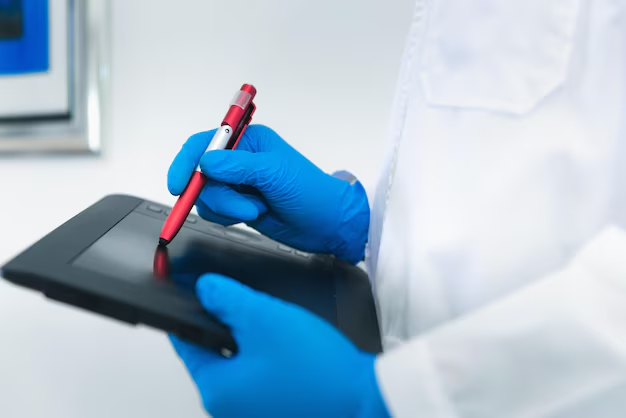Can Cancer Be Detected in Blood Tests? Here's What You Need to Know
In the ever-evolving landscape of healthcare, detection of diseases like cancer has seen significant advances. Yet, a question that frequently arises is: Can cancer be detected in blood work? This topic stirs curiosity and concern alike, as early detection remains a pivotal factor in managing cancer effectively. In this article, we will explore how blood tests can play a role in detecting cancer, along with providing a broader understanding of cancer diagnostics.
Understanding Blood Tests and Their Role
Blood tests are common investigative tools used in medical practice to assess the overall health of an individual. They provide vital clues about what's happening inside the body. This includes measuring levels of blood cells, checking organ functions, and revealing signs of diseases, including cancer.
The Basics of Blood Work
- Complete Blood Count (CBC): Measures different components of the blood (red cells, white cells, platelets) and can hint at cancer through abnormal results.
- Blood Protein Testing: Identifies various proteins in the blood, which might indicate a tumor.
- Tumor Markers: Specific substances produced by cancer cells or in response to cancer.
These tests suggest abnormalities that may require further investigation. However, they are not definitive for diagnosing cancer.
How Cancer Can Show Up in Blood Work
While blood work can raise suspicions, it is rarely conclusive for diagnosing cancer on its own. Here's how specific metrics in blood work might indicate cancer:
Blood Count Abnormalities
- Anemia: Low red blood cell count can be a marker in cancers like leukemia or colon cancer.
- Leukocytosis: Elevated white blood cell counts might indicate leukemia.
- Thrombocytopenia or Thrombocytosis: Abnormal platelet counts may suggest blood cancers.
Tumor Markers and Their Significance
- Prostate-specific antigen (PSA): High levels can point to prostate cancer.
- CA-125: Used in detecting ovarian cancer.
- Carcinoembryonic antigen (CEA): Often elevated in colon and other cancers.
Tumor markers must be interpreted cautiously, as other non-cancerous conditions can elevate these markers as well.
Beyond Blood Tests: Other Diagnostic Tools
While blood tests provide valuable insights, a comprehensive cancer diagnosis involves multiple steps:
Imaging Tests
- MRI or CT Scans: Map out tumors' locations and extent.
- Ultrasound: Offers real-time images and helps in guiding biopsies.
Biopsy
The gold standard for confirming cancer. Tissue samples are examined for cancer cells.
Genetic and Molecular Testing
Analyzes DNA to pinpoint specific cancer mutations, helping in targeted treatments.
The Value of Regular Screenings
Regular screenings are crucial, especially for those at higher risk of cancer. Here’s how routine health checks can contribute:
- Early Detection: Increases chances of successful treatment.
- Monitoring: Helps in keeping tabs on potential abnormal developments over time.
- Lifestyle Adjustments: Encourages health-promoting changes based on findings.
Who Should Consider Regular Screening?
Individuals with a family history of cancer, exposure to risk factors like smoking, or previous history of cancer should consider regular check-ups. Discussing options with healthcare providers is essential.
Innovations in Blood Diagnostics
Technological advancements continue to revolutionize blood diagnostics:
Liquid Biopsies
A non-invasive technique that detects cancer DNA circulating in the bloodstream, offering hope for early detection and monitoring.
AI and Machine Learning
These technologies enhance test sensitivity and specificity, aiding in more accurate interpretations of blood work for cancer victims.
Empowering Yourself With Knowledge
Understanding the nuances of cancer detection in blood tests enables proactive health management. Here are steps to keep you informed:
Stay Informed
Read credible sources about cancer detection and advancements.
Consult Healthcare Providers
Discuss any concerns or risks with your doctor. They're your partners in preventive health.
Adopt a Healthy Lifestyle
Lifestyle factors play a role in cancer risk. Embrace a balanced diet, regular exercise, and avoid known carcinogens like tobacco.
Wrap-Up Insight: While blood work plays an integral role in uncovering potential cancer indicators, it is part of a broader diagnostic tapestry. Regular screenings, advanced diagnostics, and informed discussions with healthcare providers ensure that you're well-equipped to manage your health proactively. By staying engaged with advancements and adopting a lifestyle conducive to well-being, you significantly contribute to your own health journey.🌟
Quick Reference Summary 📌
- Blood Work's Role: While it raises suspicion, it's not conclusive for cancer diagnosis.
- Key Tests: CBC, tumor markers, and blood protein tests are integral but need cautious interpretation.
- Complementary Diagnostics: Imaging, biopsies, genetic tests back up findings.
- Advancements: Liquid biopsies and AI are groundbreaking in early cancer detection.
- Proactive Steps:
- Stay educated on potential symptoms and advancements 🧠
- Engage in regular screenings, especially if at risk 🩺
- Consult healthcare providers for guidance 👩⚕️
- Adopt a health-conscious lifestyle 🌿
By leveraging these insights, you are taking a proactive stance in your personal health care. Each test, screening, and lifestyle choice contributes to a clearer picture of your well-being. Stay informed, stay proactive, and remain engaged with your health care community.

Related Articles
- Are Breast Cancer Lumps Painful
- Are Chills a Sign Of Cancer
- Are Colon Spasms a Sign Of Cancer
- Are Lytic Lesions Always Cancer
- Are Polyps Cancer
- Can a Blood Test Detect Cancer
- Can a Ct Scan Detect Cancer
- Can a Dexa Scan Show Cancer
- Can a Gastric Emptying Scan Show Cancer
- Can a Lung Biopsy Cause Cancer To Spread
